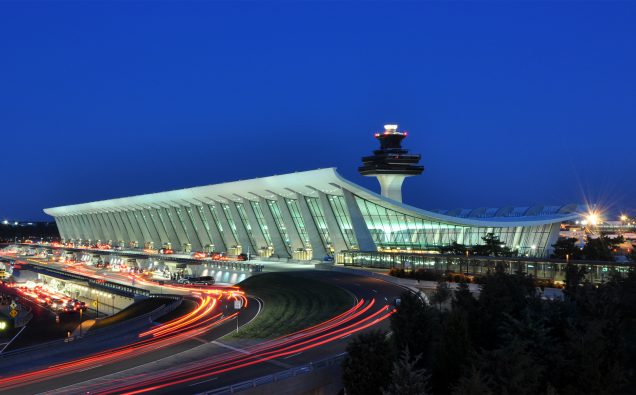
Washington Dulles International Airport Photo by Joe Ravi via Wikimedia Commons
A federal judge in Alexandria Virginia Friday held a hearing on a lawsuit seeking extension of the suspension of the executive order banning entry of people from seven Middle Eastern and African countries.
The hearing in Virginia comes a day after a 9th Circuit Court in San Francisco unanimously upheld a Seattle federal judge’s freeze on President Donald Trump’s Executive Order. With the executive order in abeyance, visitors from banned countries can continue to arrive in the United States.
The latest case in Alexandria, Va. has been filed on behalf of the travelers affected or detained at Dulles International Airport January 27 ban on entry of people from Iraq, Iran, Libya, Somalia, Sudan, Syria and Yemen went into force.
The case requests the judge to enter a preliminary injunction blocking implementation of the ban throughout the U.S. while the court weighs on a permanent ruling on the order.
On Thursday, reacting to the 9th Circuit Court’s denial of his administration’s request to reinstate the executive measure, President Trump expressed his willingness to continue the legal battle.
“SEE YOU IN COURT, THE SECURITY OF OUR NATION IS AT STAKE,” the president said in a tweet.
While challenging the Executive Order on Friday before U.S. District Judge Leonie Brinkema – appointed by President Bill Clinton in 1993 – lawyers for Virginia argued that enforcement of the measure is harmful for the state’s economy and public universities as it halts the arrival of students and academia.
The lawyers claimed the executive order is discriminatory on religous grounds and likened it to a Muslim ban and said no visitors from the seven countries carried out terrorist attacks in the United States.
The Department of Justice lawyers argued that President Trump has the power to issue the order and that the White House has “unreviewable authority to suspend the entry of any class of aliens.”
Defending the executive action, the lawyers argued that Virginia state’s claims on harm to the state from the order are vague. The ban, they said, is intended to develop stricter security control to ensure that terrorists do not enter the country and that the order does not target Muslims.
Judge Brinkema saw no immediate need to rule on the case but said a decision could come as soon as possible.
However, the judge saw the language of the executive order as “broad and imprecise,” and also pointed out a “startling” lack of evidence linking visitors from the seven countries to a specific terrorist threat.















